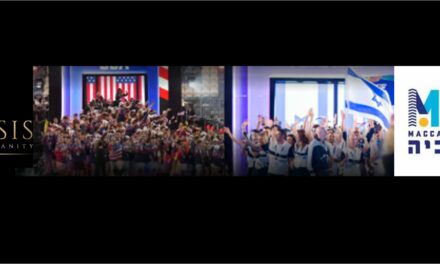The success of Israel’s “Innovation Nation” has been stunning. Consider the facts:
- Number of Israeli Noble Prize Winners: 13
- 2022 Investments in Israeli Tech Start-ups: $17 billion
- Number of Israeli unicorns (private companies valued at over $1 billion): over 70 and counting.
- Number of Israeli companies listed on the Nasdaq Exchange: 91 with a total market cap of over $116 billion. (Israel has the third most companies listed on the NASDAQ, after the United States and China).
- Number of multinational corporations with offices in Israel: over 300 benefitting from Israel’s renowned R&D capabilities.
Beginning in the 1960s, the Israeli government supported R&D in the defense industry, aligned with its mandatory military service, and out of the work associated with the Israeli Defense Force (IDF).
In the late 1980s, the government established the Office of the Chief Scientist in the Ministry of Economy, which in 2016 became the Israel Innovation Authority (IIA), an independent but government-funded agency.
Today, the IIA offers a wide variety of support, ranging from “incubators” for the initial stages of innovation to providing training and seed money to connecting startups with funders in Israel and overseas, while exceptional non-profits like Start-Up Nation are using technology to match entrepreneurs with partners and funders, with an impressive track record (which you can access here).
Israel’s academic institutions continue to play a strategic role, with universities including Hebrew University, the Technion and the Weizmann Institute ranked among the top in the world. These universities have educated tens of thousands of startup founders in Israel’s high-tech sector as well as its scientists and engineers.
Genesis Business Humanity’s team has created this list of ten of our favorite social impact companies born in Israel which are actively protecting people and the planet, while driving prosperity for bold entrepreneurs and committed teams.
1.
Iron Dome
Iron Dome detects incoming short-range rockets and shells, assesses the threat, and dispatches a high-speed missile to intercept and destroy anything determined to be a danger. Developed by two Israeli firms—Rafael Advanced Defense Systems and Israel Aerospace Industries with support from the United States, the system has thwarted approximately 97% of missiles launched to strike Israeli population centers by Hamas and Hezbollah since it was introduced in 2011.
2.
Waze
In 2006, Israeli entrepreneurs Ehud Shabtai, Amir Shinar and Uri Levine developed a commercial-free digital database to help drivers shorten travel times around Israel. Today it is Waze, the real-time driving app now owned by Google and used by 140 million people a month worldwide. Users report traffic accidents, road hazards, police activity, street events and even gas prices. Waze then uses the data to constantly update its maps and offer increasingly accurate recommendations which lead to safer driving which can save lives.
3.
Pillcam
A tiny camera inside a swallowed capsule the size of a jellybean takes pictures of a patient’s bowel that are transmitted via sensors attached to their abdomen. Pillcam, a noninvasive method for diagnosing diseases of the digestive system that are often missed by painful traditional methods including colonoscopies was invented by Israeli engineer Gavrial Iddan and Israeli gastroenterologist Eitan Scapa.
4.
Rewalk
After a 1997 car accident left him a quadriplegic, Israeli entrepreneur Amit Goffer invented the ReWalk robotic exoskeleton. Available for home use since 2014, the ReWalk “exo-suit” features motorized joints and a computerized system that allows the wearer to stand, walk and climb stairs. While the ReWalk suit is expensive (upwards of $70K), it is in use in some hospitals for patients recovering from strokes and spinal cord injuries.
5.
ESGgo
ESGgo is an AI-based “sustainability operating platform.” A SaaS powered by AI, it provides different tools for public companies and consulting firms. With ESGgo teams can strategize, examine, report and operate programs efficiently and cost-effectively. in a highly fast and cost-effective way.
6.
Conflu3nce Health AI (CHAI)
Conflu3nce/Conflu3nce Health AI’s healthcare agenda focuses on developing personalized, user-centric evaluation metrics: biomarkers of change that can support early detection of disease for vulnerable and at-risk populations. Healthcare practices changed with the pandemic, engaging consumers, shifting point-of-care to telehealth, and recognizing acute and historical service gaps.
7.
Effectivate
With a mission to empower seniors and preserve quality of life, Effectivate sets a new standard for computerized-brain-training in the neuro-wellness and AgeTech arenas. By providing cutting edge memory training for older adults and helping them maintain their cognitive abilities and quality of life, the company contributes to advances in medicine and innovation, With age, many physical abilities decline, including cognitive abilities such as memory and attention.
8.
AIVF
Founded and headed by clinical embryologist Daniella Gilboa, AIVF uses artificial intelligence (AI) to guide the embryo selection process when retrieving and choosing eggs for fertilization. This June, AIVF completed a $25 million investment round to expand the use of its main software platform, called EMA, an acronym for Embryology Management Assistant—and the Hebrew word for mother.
9.
Gabriel Network
Formerly Blue Systems, the Gabriel Network is an Israeli startup that created a “smart panic button” for crisis management during violent incidents like school shootings and terror attacks. The company has seen demand for its advanced security software rise significantly in recent years among companies and organizations in the private sector. Yoni Sherizen, the co-founder of Gabriel Network says the solution has already been rolled out across a double-digit number of Jewish institutions in the US including synagogues and community centers over the past three years, and that the company has been expanding to many more communities, businesses, educational institutions and more in North America.
10.
Hortica
Hortica is an Israeli company that develops and manufactures technologies for precision horticulture. Their proprietary “environment within an environment” aims to bring sustainability, resilience, and stability to full-spectrum local food security. Hortica has developed an automatic device that allows cannabis growers to control crops using sensors, providing the highest quality buds required for pharmaceutical grade medical cannabis, used to treat pain more effectively, safely, and economically than opiods and other traditional options.
We’d love to hear from you if you have a story to share about more inspiring start-ups in Israel. Contact our editor, Arti Loftus, here. (form)





